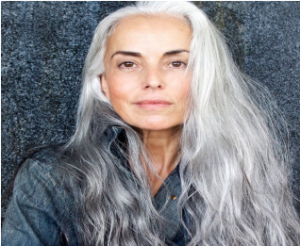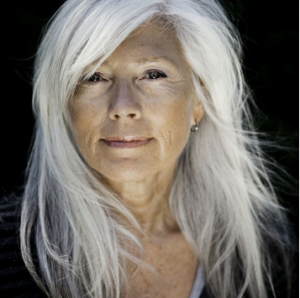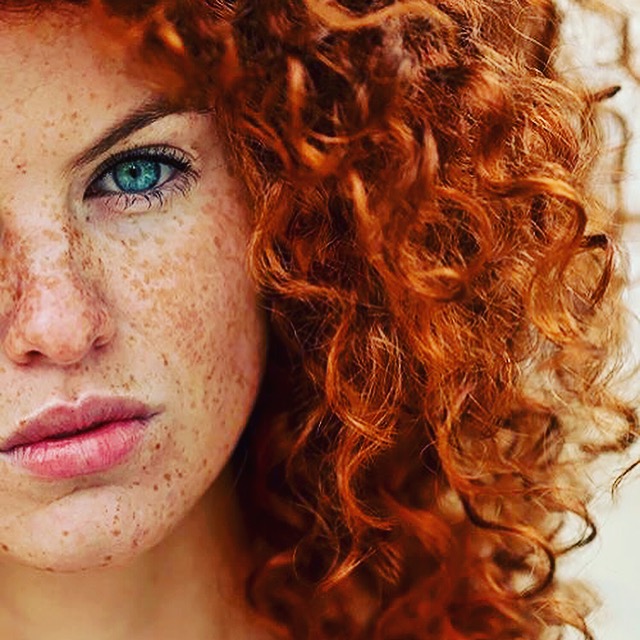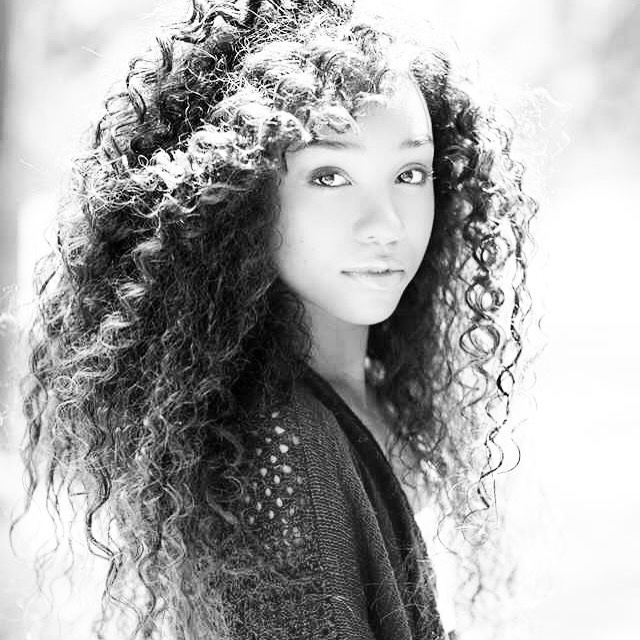Haircare, Hair Science
Grey Hair
What makes your hair turn grey – apart from the obvious?
A trichologist, Guy Parsons, founder of My Hair Doctor, answers all your grey-haired questions

Like wrinkles, grey hairs are visible signs of ageing, but can the way you treat your hair keep it youthful in the same way that skin care can. Trichologist Guy Parsons,explains why we go grey and whether we can delay it – should we actually wish to.
1. When do most women go grey then?
“Most women who are in their 30s should see a few grey hairs, but by the time they get into their 50 most women would expect to have more than 50% of their scalp hairs turn grey.”
 2. Why the hell do we get grey hair in the first place?
2. Why the hell do we get grey hair in the first place?
“Grey hair is a combination of normally pigmented hairs interspersed with white ones. Hair turns white when the pigmentation cells responsible for colour (melanin) stop being produced.”
3. So, can you slow the rate of greying hair?
“Nutritional and hormonal factors can affect hair colour as well as stress but, by and large, the predisposition to go grey earlier or later in life is genetic.”
4. Is grey hair more common in certain people?
“Grey hair is an inherited trait – if your parents went grey early there is a possibility that you will too. Caucasians seem to go grey earlier and some health conditions may cause premature greying such as diabetes, pernicious anemia or thyroid problems.”
5.What should we eat to maintain healthy hair?
“Hair consists of protein (keratin) so it is very important for strong healthy hair. Foods like eggs and fish are all good sources of first class protein. Proteins consist of amino acids (some essential and some non-essential). Essential amino acids are more abundant in animal protein and more easily absorbed. Deficiencies of iron, calcium, zinc, vitamin D, B12 and B6 can be common so it’s important to eat foods that contain these vitamins or, if you’re vegetarian, it may be necessary to take them in supplemental form.”
 6. Anything we take to combat going grey, if we’re worried?
6. Anything we take to combat going grey, if we’re worried?
“A multivitamin supplement such as Seven Seas Perfect7 contains Omega-3s, which prevent the hair from being dry and lifeless as they have a moisturising effect which can also reduce itching and flaking dandruff. The supplement also contains copper, which is known to prevent the onset of greying hair by boosting the production of melanin (the pigment that gives hair colour).
7. Can we make lifestyle changes to improve hair health?
“Since hair is such a barometer of our health, any improvements we make to our general wellbeing will be a bonus for our hair. A well balanced diet rich in proteins, carbohydrates – which contain key essential vitamins and minerals – are great for hair growth. As hair is recognised as a nonessential tissue by the body we need to top up our energy levels with proteins and carbohydrates every 4-5 hours. Research indicates that the energy available to non-essential tissue such as hair follicles may be reduced after this time. As certain diseases can have an impact on the immune system and may possibly cause deficiencies it is wise to have blood tests at least once a year through your own GP or private practitioner.”
8. Does ‘massaging the scalp’ actually do any good?
“Like our bodies need regular exercise, so does our head. Shampooing hair daily means we are massaging our scalps, which in turn results in a clean fresh healthier scalp. Massaging our scalps through needing action means we are taking vital nutrients to the scalp via the blood supply and feeding our follicles.”
GREY HAIR TEXTURE
Contrary to popular belief, grey hair is not coarser – it is usually finer, as everyone’s hair gets finer with age. The reason why grey hair seems coarser is because oil glands produce less sebum when you’re older, which results in drier and more roughly-textured hair. This can also be due to the fact that most people chemically process and colour their hair more as they get older. “The hair tends to become finer as we age, so more styling aids are used to create body and volume. These can further dry out the hair if used incorrectly. However, reversing this damage can be achieved by using scalp and hair masks. They should be used on a weekly basis to start with and then twice a month. We advise our clients to knead the scalp for 30 seconds before shampooing, and then apply the mask, massaging it in for 5 minutes. It’s also advantageous to use a protective styling aid when blow-drying. Your hair may also ‘feel’ coarser if you pull out your first few grey hairs. This is because constant pullingout of hair can distort your follicles, resulting in more crinkly hair.”
CARING FOR GREY HAIR
Grey hair is often finer and drier, so you might want to change your hair products. A volumizing shampoo and more moisturizing conditioner can be very effective. Grey hair should be handled the same way as naturally pigmented hair. If you want to perm it, do so. But just be aware that perms can cause discolouration and turn grey hair slightly yellow, as can smoking. If discolouration occurs, use a blue/purple-coloured shampoo, conditioner or rinse to camouflage it. Dirt shows up faster on greying hair than any other hair colour. Shampoo and condition daily to get the best out of your hair. Grey hair is more vulnerable to sun damage because it lacks melanin – a pigment that protects your hair and skin from the sun. This is also the reason why fair-skinned people burn more easily. If you have grey hair, it’s very important to use a hair product containing SPF on a daily basis. And if you’re sitting in the sun for a prolonged period of time, use an intense hydrating mask for extra protection.

